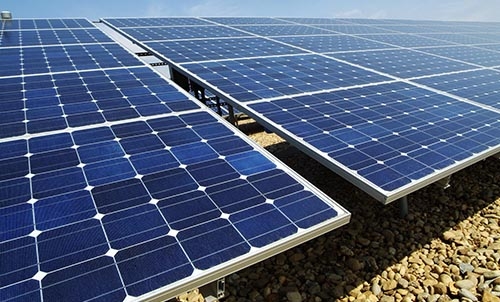‘GCC must embrace solar power’
Solar power can drive the future of Bahrain and other GCC countries, as the region’s 60 per cent surface area has excellent suitability for solar-photovoltaic deployment, stated a recent report.
Utilising one pc of the area can create 470 gigawatts (GW) of power generation capacity, according to a report by International Renewable Energy Agency (IRENA).
“The GCC countries lie in the so-called Global Sunbelt and boast some of the highest solar irradiances in the world,” the report said.
GCC countries have declared goals in place regarding conservation of natural resources, improving energy efficiency and for deploying renewable technologies.
The biggest challenge for introducing solar power on a wide scale had been the high cost structure. But, the costs of solar power equipments have come down drastically since 2009. Solar PV modules, for example, cost only a fourth of its price seven years back.
“The recent auction for the Mohammed Bin Rashid Al Maktoum Solar Park 2 in Dubai yielded prices as low as 5.85 US cents per kilowatt-hour (kWh). This price is one of the lowest in the world and even competitive with oil and gas in the region,” the report said.
“If the GCC countries renewable objectives are met by 2030, the projected 80GW renewable energy capacity could bring far-reaching socio-economic benefits, including job creation and savings in fuel consumption, CO2 emissions and water withdrawal,” it added.
IRENA estimates that achieving the GCC renewable energy targets and plans could create an average of 140,000 direct jobs every year. In 2030 alone, close to 210,000 people could be employed in renewables.
IRENA added that the region could save 2.5 billion barrels of oil equivalent, converting to a savings of atleast US$55bn, if GCC countries can achieve their renewable energy targets.
“Desalination, which provides a major share of fresh water requirement in the region, takes a major share of energy consumption, even up to 30pc of total energy use in some countries. Greater use of renewable energy like solar power could drastically cut fossil fuel consumption,” the report said.
It stated, if large scale renewable energy projects and desalination projects are linked, it could spur the future of the region in terms of more investment, less costs, job creation and export potential.
“In the recent past, efforts were made to overcome existing barriers by setting up specialised institutions, building adequate capacities and providing a vision for the sector’s development through renewable energy plans and targets,” according to the report
“Government commitments can take the form of credible, time-bound renewable energy targets, which serve to anchor investor confidence and set out the trajectory for the development of the sector. To be effective, targets must be backed by dedicated policies and regulatory frameworks,” IRENA suggests in the report.
Related Posts

